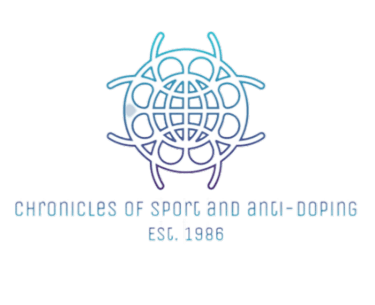The Court of Arbitration for Sport Rejects Alex Schwazer's Appeal Against Eight-Year Ban for Anti-Doping Violations


The CAS's decision to reject Alex Schwazer's appeal against his eight-year ban for anti-doping violations sends a strong message to athletes worldwide. The court's ruling underscores the significance of upholding integrity and fair play in sports, highlighting the zero-tolerance approach towards doping. This case serves as a reminder that athletes must abide by the rules and regulations set forth by governing bodies to ensure a level playing field for all competitors. The CAS, known for its impartiality and expertise in sports-related disputes, thoroughly reviewed the evidence presented by both parties before reaching its decision. This meticulous process demonstrates the court's commitment to maintaining the integrity of sports and protecting the rights of clean athletes. Schwazer's appeal undoubtedly faced scrutiny as he sought to challenge the original ban imposed on him. However, the CAS's rejection of his appeal indicates that they found the evidence against him to be compelling and conclusive. It is crucial to note that the CAS operates independently from any sporting federation or organization, ensuring a fair and unbiased evaluation of cases brought before them. In recent years, the fight against doping in sports has intensified, with governing bodies implementing stricter measures to detect and punish offenders. This unwavering commitment to clean competition aims to safeguard the integrity of sports and protect the health and well-being of athletes. The CAS's ruling in Schwazer's case serves as a precedent for future anti-doping cases, reiterating the gravity of such violations and the severe consequences they entail. Athletes must be fully aware of the rules and regulations surrounding anti-doping measures and take responsibility for their actions, both on and off the field. Furthermore, this decision by the CAS emphasizes the importance of education and support systems for athletes. It highlights the need for comprehensive anti-doping programs that not only focus on detection and punishment but also on prevention and rehabilitation. By investing in education and support, sporting organizations can empower athletes to make informed decisions and resist the temptations of doping. Ultimately, the CAS's rejection of Alex Schwazer's appeal against his eight-year ban for anti-doping violations is a significant victory for the integrity of sports. It sends a clear message that doping will not be tolerated and reinforces the commitment to fair play and clean competition. This ruling serves as a reminder to all athletes that the consequences of engaging in doping practices are severe and can have long-lasting effects on their careers and reputations.
Despite his undeniable talent and previous achievements, Alex Schwazer's career will forever be marred by his involvement in doping scandals. The revelation of his use of erythropoietin (EPO) in 2012 was a shocking blow to the racewalking community and the sports world as a whole. It raised questions about the integrity of the sport and the lengths athletes would go to gain a competitive edge.
After serving his initial three-year ban, Schwazer had an opportunity for redemption. He returned to competition with the hope of proving that he could succeed without the aid of performance-enhancing substances. However, his second positive test for testosterone shattered any hopes of a comeback.
The use of testosterone is particularly concerning because it is a hormone that naturally occurs in the body. When taken exogenously, it can significantly enhance an athlete's performance by increasing muscle mass, strength, and endurance. Schwazer's decision to resort to such measures raises questions about the pressures athletes face and the lengths they are willing to go to achieve success.
The International Association of Athletics Federations (IAAF) was swift in its response to Schwazer's second offense. The eight-year ban effectively ended his athletic career and sent a strong message to other athletes about the consequences of doping. It also highlighted the importance of maintaining the integrity of sports and ensuring a level playing field for all competitors.
While Schwazer's case is undoubtedly a dark chapter in the history of racewalking, it serves as a reminder of the ongoing battle against doping in sports. Authorities and organizations have implemented stringent anti-doping measures to protect the integrity of competitions and safeguard the health of athletes. However, the fight against doping is an ongoing one, as athletes continue to seek new ways to gain an unfair advantage.
As the sporting world continues to grapple with the issue of doping, it is crucial to remember that there are countless athletes who compete fairly and strive for excellence without resorting to illegal means. These individuals serve as role models and remind us of the true spirit of sportsmanship and fair play.
The Appeal and CAS Decision
Unwilling to accept the severity of the ban, Schwazer decided to appeal the decision to the Court of Arbitration for Sport (CAS) in Lausanne, Switzerland. The CAS is an independent institution that specializes in resolving sports-related disputes and is widely regarded as the highest authority in matters of sports arbitration.
Schwazer's appeal was based on several arguments, including the claim that his positive test was the result of contaminated nutritional supplements and that he had unwittingly ingested the banned substances. Additionally, his legal team argued that the eight-year ban was disproportionate to the offense and that Schwazer had already served a three-year suspension.
During the appeal process, Schwazer's legal team presented a comprehensive analysis of the nutritional supplements he had been taking leading up to the positive test. They provided evidence that the supplements had been independently tested and found to be contaminated with trace amounts of the banned substances. Furthermore, they argued that Schwazer had diligently checked the labels of the supplements and relied on the reputation of the manufacturer, unaware of any potential contamination.
However, the CAS carefully examined the evidence presented by both parties and ultimately rejected Schwazer's appeal. The court emphasized that athletes are responsible for what they put into their bodies, regardless of the source of the banned substances. While acknowledging the possibility of contamination, the CAS maintained that athletes have a duty to exercise caution and ensure they are not inadvertently ingesting banned substances.
In upholding the eight-year ban, the CAS also considered the gravity of the offense and the need to deter other athletes from engaging in doping practices. The court highlighted the detrimental impact of doping on the integrity of sports and the importance of maintaining a level playing field for all competitors.
The CAS decision reflects the court's unwavering commitment to upholding the principles of fair play and protecting the rights of clean athletes. By maintaining the ban, the CAS sends a strong message that doping will not be tolerated and that athletes must bear the consequences of their actions, even if they claim innocence or ignorance.
Moreover, the CAS decision sets a precedent for the accountability of athletes and sports organizations in the fight against doping. It emphasizes the need for rigorous testing protocols and strict enforcement of anti-doping regulations. This decision sends a strong message to athletes, coaches, and sports administrators that they must be diligent in their efforts to prevent doping and maintain the integrity of the sport.
Additionally, the CAS decision raises questions about the effectiveness of current anti-doping measures and the role of sports governing bodies in addressing this issue. While the decision to ban Alex Schwazer for eight years is a step in the right direction, it also highlights the need for continuous improvement in anti-doping procedures, education, and research.
The CAS decision also raises concerns about the prevalence of doping in sports and the pressure faced by athletes to achieve exceptional results. It prompts a broader discussion about the culture of performance-enhancing substances and the ethical dilemmas faced by athletes who may feel compelled to use them in order to stay competitive.
Furthermore, the CAS decision underscores the importance of transparency and accountability in the anti-doping process. It reaffirms the need for a fair and impartial system that allows athletes to defend themselves against allegations and ensures that their rights are protected throughout the proceedings.
In conclusion, the CAS decision in Alex Schwazer's case has far-reaching implications for the world of sports and the fight against doping. It emphasizes the importance of fair play, athlete responsibility, and the need for continuous improvement in anti-doping measures. This decision serves as a reminder that doping undermines the integrity of sports and poses serious health risks to athletes. It also calls for greater transparency and accountability in the anti-doping process, as well as a broader examination of the culture and pressures that contribute to doping in sports.
The Future for Alex Schwazer
With the CAS decision effectively ending his athletic career, Alex Schwazer faces an uncertain future. The eight-year ban means that he will be ineligible to compete in any professional sports events until 2024. Schwazer will have to come to terms with the consequences of his actions and explore new avenues outside of competitive sports.
However, Schwazer's case also serves as a cautionary tale and an opportunity for reflection. It highlights the importance of making ethical choices and the potential consequences of succumbing to the temptation of doping. Schwazer's story can serve as a lesson for young athletes, reminding them of the importance of integrity, hard work, and dedication in achieving success in sports.
Moreover, Schwazer's future could potentially involve using his experiences and mistakes to educate others about the dangers of doping. He could become an advocate for clean sports, working with organizations and speaking at events to raise awareness about the negative impact of performance-enhancing drugs. By sharing his personal journey and the consequences he faced, Schwazer could help prevent other athletes from making similar mistakes and guide them towards a path of ethical and fair competition.
Additionally, outside of the sports world, Schwazer may find opportunities to contribute to society in different ways. He could explore avenues such as coaching or mentoring young athletes, using his knowledge and expertise to guide them towards success while emphasizing the importance of integrity. Schwazer could also pursue educational opportunities to expand his knowledge in fields related to sports science or anti-doping, becoming an expert in the fight against doping and making a positive impact in the sports community.
Ultimately, while the CAS decision regarding Alex Schwazer's appeal against his eight-year ban for anti-doping violations has closed one chapter of his life, it opens the door to new possibilities. Schwazer has the opportunity to learn from his mistakes, grow as an individual, and make a meaningful contribution to the world beyond his athletic career. The future may be uncertain, but with determination and a commitment to making amends, Schwazer can forge a new path that inspires others and leaves a lasting impact on the sports community.




